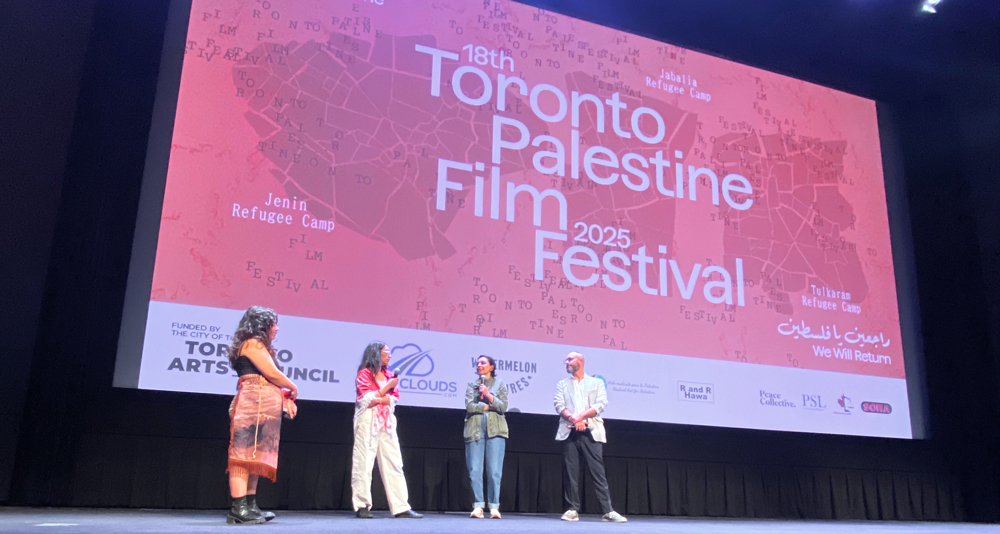
Listen to the whole story here:
The Toronto Palestine Film Festival (TPFF) premiered three short films this weekend that confront anti-Palestinian racism, marking the first time the festival’s residency program has introduced a theme. The films include The Silence They Taught Us, You’ve Seen it on TV and Between the Silence and the Noise. Each runs approximately 15 minutes and debuted at TIFF Lightbox on Sunday.
The residency was launched in collaboration with the Arab Canadian Lawyers Association (ACLA), which in 2022 released a landmark report titled Anti-Palestinian Racism: Naming, Framing and Manifestations. The report defines anti-Palestinian racism as “a form of anti-Arab racism that silences, excludes, erases, stereotypes, defames or dehumanizes Palestinians or their narratives.”
ACLA co-founder and TPFF organizer Dania Majid said the residency films build on that work. “Once we released the framework report on anti-Palestinian racism, it was really quickly taken up by our community and our allies,” she said. “They finally saw something that names their lived experience and helped them understand what they go through as Palestinians or advocates for Palestine.”
For TPFF programmer Amanda Boulos, the residency films offer a way to translate those findings into something audiences can feel. “We are targeting films that look at anti-Palestinian racism in a creative way to help educate people outside of a written report, for instance, or a lecture or a newspaper article,” she said.
The films emerged from months of mentorship and support where filmmakers received $5,000, access to equipment and guidance.
For emerging artists, that support was transformative. Noel Pendawa, who worked as an editor for The Silence They Taught Us, said the residency gave first-time filmmakers room to experiment. “It creates a free space, because amongst newcomers you have the freedom to make mistakes and find your way,” he said.
Other participants described navigating the risks of telling Palestinian stories in Canada. Sara Balkis, director of Between the Silence and the Noise, explores memory and family history in her film. She linked her work to the challenges students face in speaking out on campus.
“We face a lot of repression in protesting for Palestine and demanding that our universities divest,” Balkis said. “Making this film on a university campus that has been complicit in the genocide, I felt like I was pushing the university to do better, but there was definitely this fear that I would be suppressed or censored.”
Rimah Jabr, director of You’ve Seen it on TV, took a subtler approach, building her film on what she called a “collapse of logics” to mirror how Palestinian voices are often distorted or dismissed.
Majid added that the Canadian experience cannot be separated from events abroad.
“[Anti-Palestinian Racism is] usually manifested as a way to silence us or erase us in order to protect the occupation, apartheid and genocide that’s happening in Palestine,” she said.
TPFF staff member Youssef Mutawe said the diversity of approaches in the program this year reflected the many ways anti-Palestinian racism manifests. “Some films didn’t even bring up the topic explicitly but engaged with it through institutions or personal histories,” he said. “It opens your eyes to how many ways it can be expressed.”
Though the films differ in style, organizers stressed their shared purpose of challenging erasure and affirming Palestinian voices.
“The goal was never just to make art; it was to make something that could not be ignored,” Boulos said.
Reporter, OTR, F2025
Otter.ai was used in transcribing the interviews for this story.

